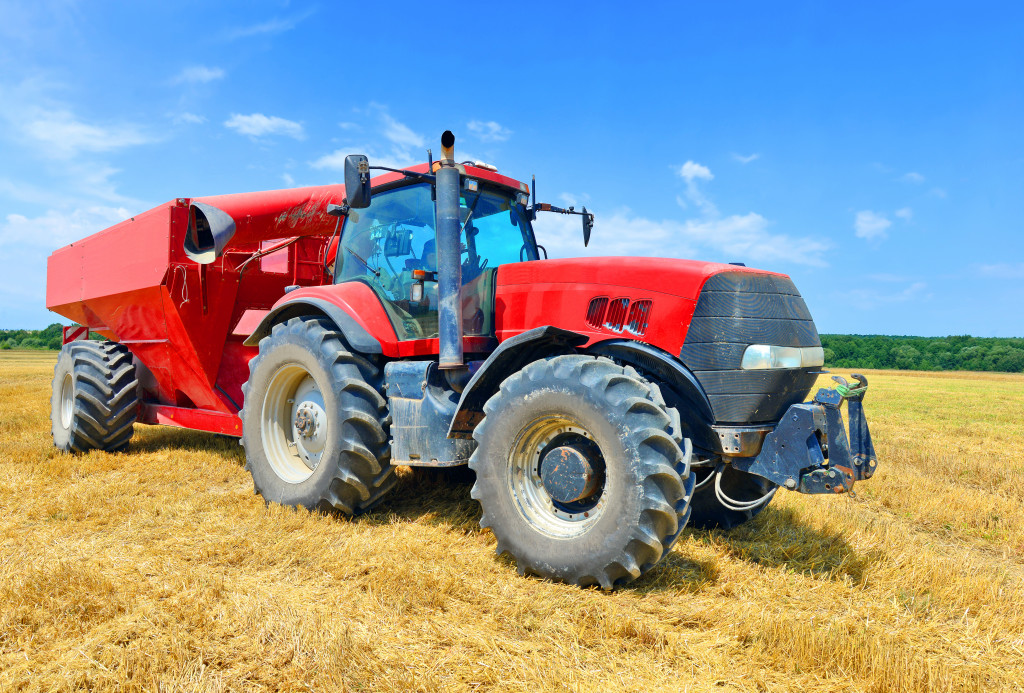- Starting a farm business requires an understanding of local laws and regulations to ensure compliance and protect the rights and interests of farmers.
- Necessary equipment, such as tractors, plows, seeders, harvesters, irrigation systems, etc., should be chosen carefully for the job to save costs and improve yields.
- Effective marketing campaigns can help increase visibility for the farm business and introduce products to potential customers.
- Establishing relationships with other farmers and businesses can provide valuable insight into the industry while offering new growth opportunities.
Agriculture plays a vital role in today’s world, providing food and nutrition to billions of people. In addition, it contributes significantly to economic development, ecological balance, and human health. According to the United Nations Food and Agriculture Organization (FAO), agriculture provides about four percent of the global Gross Domestic Product (GDP). In 2017 alone, the total value of agricultural production was estimated to be around $3 trillion.
In many developing countries, agriculture is a lifeline for smallholders who depend on farming as their primary source of income. It is an essential part of local economies providing livelihood security for rural dwellers and contributing significantly to poverty reduction. Through its ability to increase productivity, diversify agricultural production and generate income opportunities, agriculture helps to build resilient communities that can better withstand unfavorable environmental conditions such as droughts or floods.
To have a successful farming business, you need to understand what is involved in running a farm. Here are a few to consider.
Rules and Regulations
Agriculture offers a unique opportunity for smallholders to earn a living and improve their livelihoods. However, starting a farm business is not a simple task. Before beginning such an endeavor, it is essential to understand the relevant rules and regulations to ensure compliance with local laws and regulations. This knowledge will help you know what is required of you as a farmer and protect your rights and interests.
Learning the rules and regulations around starting a farm business helps to ensure that your farming operations are conducted ethically and respect the environment, animal welfare, food safety standards, and other related issues. It also helps ensure that you meet all applicable legal requirements regarding taxes, licenses, permits, zoning, insurance coverage, water rights, etc. Knowledge of these regulations gives farmers the confidence they need to operate successfully without issues with local authorities.
Identifying the Equipment and Tools Required

Before starting a farm, you must identify the tools and equipment necessary to carry out your operations. This could include tractors, plows, seeders, harvesters, irrigation systems, storage facilities, livestock feeders and drinkers, fertilizers applicators, animal shelters, etc. Choosing the right tools and machinery for the job is essential as it can enable farmers to reduce costs while improving their yields.
Unfortunately, some pieces of farming equipment are expensive to obtain for small farms. A tractor is a prime example of a piece of equipment that could cost tens of thousands of dollars. In this case, used tractors for sale might be the more economical option since they can still offer the same performance as a new one but at a fraction of the cost.
In some cases, it might be possible to rent machinery and tools instead of buying them outright. This could be a great way to save money in the short term while testing out different equipment before making a large purchase.
Marketing Your Products and Services

Marketing is an essential part of running any successful business, including farming. You need to determine your target customers and develop strategies for effectively reaching those audiences. After all, even the best products won’t sell if no one knows about them!
Here are a few marketing campaigns to consider when trying to get clients for your farm business:
Go on Social Media
Social media platforms are an excellent way to market your farm business. Create a profile on popular platforms and share pictures, videos, and stories about your farm operations. This will help you build awareness about your product offerings and services among potential customers.
Participate in Local Events
Participating in local events such as fairs, festivals, or farmers’ markets can be a great way to introduce your products to new customers while creating relationships with existing ones.
Reach Out to Retailers
Reaching out to retailers is another excellent marketing strategy for farmers. By contacting local stores and supermarkets that would carry your products, you can increase the visibility of your farm business and potentially expand sales significantly.
Create a Professional Network
Building solid relationships with other farmers, local businesses, and interested parties can help you gain insight into the industry while offering new growth opportunities. Networking is a great way to stay informed and connected with your customers and peers.
Final Thoughts
Starting a farm business is no small undertaking. It requires significant time, effort, and resources to ensure success. However, with the proper knowledge and resources, it can be an enriching experience that will help you lead a more fulfilling life. Prioritize your learning of the rules and regulations before starting, identify the equipment you need for the job, and then market your products and services effectively. With hard work and commitment, your farm can yield positive results that will benefit you and society as a whole.
